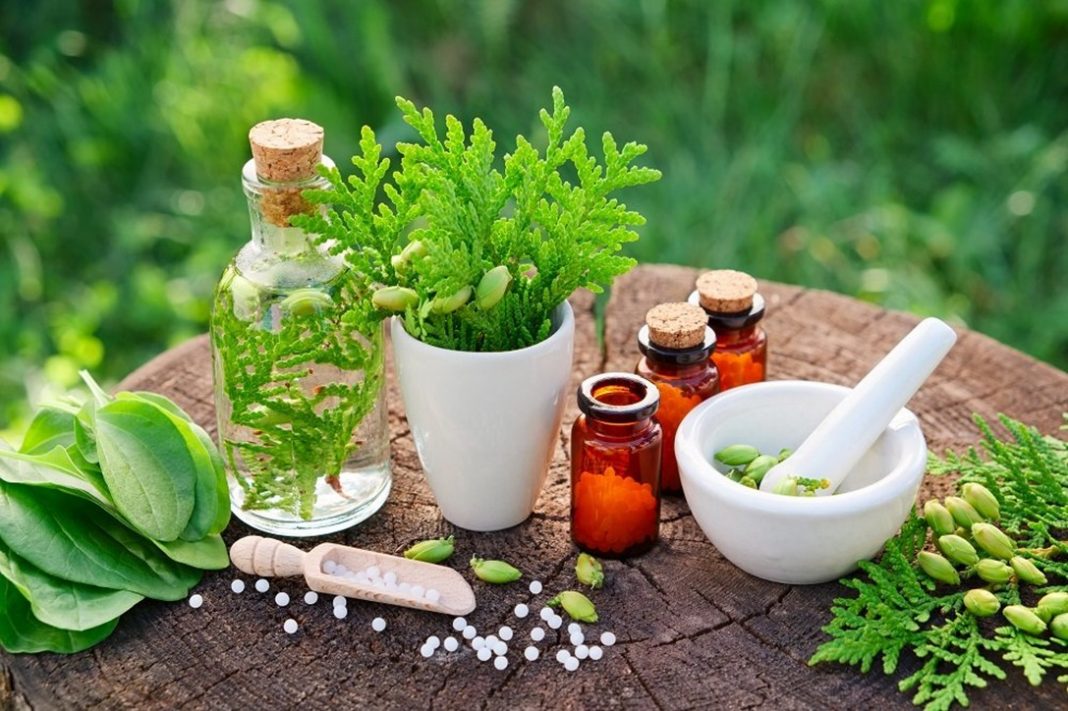ISLAMABAD: Pakistan’s climate is ideal for growing medicinal plants possessing anti-inflammatory compounds, especially for treating rheumatoid arthritis. By growing them, the country can reap huge fiscal outcrops in multiple aspects i.e., expansion and development in the pharma industry, low production cost, cut in import bill of medicinal salts, export of own produced medicinal salts, development of new job opportunities, and better earnings for the stakeholders such as botanists, herbal cure professionals, pharmaceutical experts, and farmers, reports WealthPK.
Phytochemicals found in papaya, turmeric, ginger, and pitcher plant have anti-inflammatory and immunomodulatory properties and can be grown well in the country.
In a discussion with WealthPK about the indigenous development of plant-based protease and anti-inflammatory drugs, Principal Scientific Officer (Plant Introduction and Seed Health Lab) from the National Agricultural Research Center (NARC) Dr Riffat Tahira said, “Due to the hike in medicine prices and expensive radiofrequency treatment, a great number of arthritis, herniated disc, and sciatica patients cannot cure permanently. One of the main reasons for the hike in medicine prices is the import of salts essential for production of the medicine. So, local production is very important in Pakistan, and farmers can also earn high incomes.”
To cope with this issue, the NARC is working to launch a project to promote regular growth of medicinal plants on commercial basis, she said, adding that the Plant Genetic Resources Institute (PGRI) of the NARC will actively serve and assist in this regard.
“Turmeric and ginger are successfully grown in the country. Papaya is famous for its anti-inflammatory compound ‘papain’ which reduces joint pain, stiffness, and degenerated disk therapies. Turmeric and ginger are also known for having agents to cope with arthritis, hyperlipidemia, and inflammation. Pitcher plant (Nepenthes) and milk thistle (Silybum Marianum) contain Sarapin and Silymarin which restrain pain, but they need to be introduced for commercial growth,” Dr Riffat said.
Tahira Begum, an arthritis patient for the last three decades, in a discussion with WealthPK said, “To relieve certain pains, regular medication is important to me. But, the monthly bill of my regular medication to fight this ailment has exceeded PKR20,000 making it difficult for me to cope with the situation. Treatment at an affordable price can help me and other patients fighting with the same problem.”
About 1% of the global population is suffering from rheumatoid arthritis which badly impacts their quality of life, economic conditions, and working capacity. Most of the salts important to manufacture arthritis medicine are imported. The high inflation has caused a sudden hike in the prices of its medicines. The outreach of drugs makes the lives of arthritis patients miserable.
Muhammad Ajmal, a practicing chemist, in a discussion with WealthPK said, “To cure rheumatoid arthritis, different types of medicines are used in the form of tablets, ointments, injections, etc. A few common remedial groups are i.e., non-steroidal anti-inflammatory drugs (NSAIDs), steroids (corticosteroids), diseases modifying anti-rheumatic drugs (DMARDs), biologics, Janus Kinase (JAK) inhibitors, etc.”
“Drug prices are skyrocketing in the country. The major cause is the import of salts for their production. Due to instability in the economic cycle, fluctuations in money value cause problems to control their prices. If the situation remains the same for some time, it will become too difficult for rheumatoid patients to afford regular medicines,” he added.
To develop plant-based protease and anti-inflammatory drugs indigenously, the policy of public-private partnership (PPP) can be the best option. The PPP will not only make it easy to develop this industry in the country, but enough funding can also be easily obtained for clinical trials.
-INP






